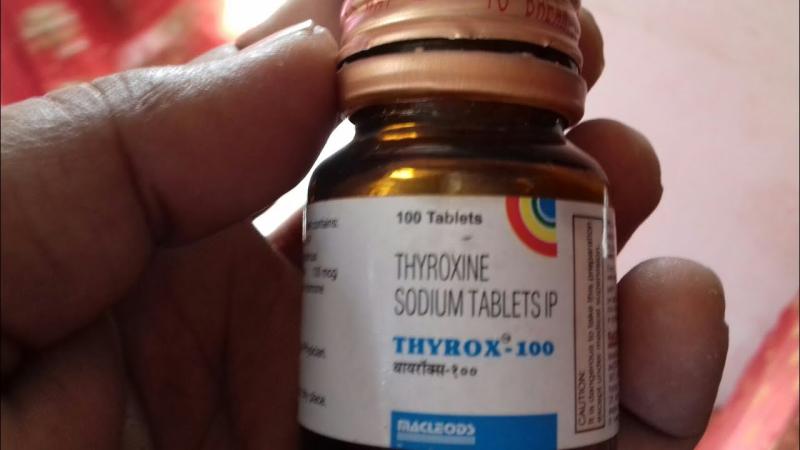Does thyroxine have side effects?
Yes, like many medications, thyroxine (also known as levothyroxine) can have potential side effects. It's important to note that not everyone will experience these side effects, and for many people, thyroxine is well-tolerated and effective in treating hypothyroidism. However, it's essential to be aware of potential reactions. Common side effects of thyroxine include:
Overmedication Symptoms:
- Taking too much thyroxine can lead to symptoms of hyperthyroidism, even if the individual is being treated for hypothyroidism. Symptoms may include weight loss, rapid heartbeat, nervousness, insomnia, excessive sweating, or heat intolerance.
Cardiovascular Effects:
- Thyroxine can affect the cardiovascular system. Some individuals may experience symptoms such as palpitations, an increased heart rate, chest pain, or an increase in blood pressure.
Gastrointestinal Issues:
- Gastrointestinal side effects may include nausea, vomiting, diarrhea, or abdominal cramps. These symptoms are generally mild and may improve over time.
Muscle Weakness and Cramps:
- Thyroxine can impact muscle function, leading to symptoms such as muscle weakness, cramps, or aches.
Insomnia or Sleep Disturbances:
- Some individuals may experience difficulty sleeping or insomnia as a side effect of thyroxine. Taking the medication in the morning, rather than close to bedtime, may help minimize this side effect.
Hair Loss:
- In some cases, people taking thyroxine may notice hair loss. This side effect is usually temporary and may improve over time.
Menstrual Irregularities:
- Thyroxine can influence the menstrual cycle in women, potentially leading to changes in the regularity and intensity of periods.
Allergic Reactions:
- While rare, some individuals may experience allergic reactions to thyroxine, resulting in symptoms like rash, itching, swelling, severe dizziness, or difficulty breathing.
It's important to promptly report any unusual or severe symptoms to a healthcare provider. Additionally, if you experience symptoms of overmedication or hyperthyroidism, it's crucial to seek medical attention promptly, as adjustments to the medication dosage may be necessary.
Important Considerations:
Individual Variability: The severity and occurrence of side effects can vary among individuals. Some people may experience no side effects, while others may have mild or more pronounced reactions.
Dosage Adjustment: If side effects occur, healthcare providers may need to adjust the dosage of thyroxine to achieve optimal thyroid hormone levels while minimizing side effects.
Regular Monitoring: Individuals taking thyroxine for hypothyroidism typically undergo regular thyroid function tests to ensure that hormone levels are within the desired range. This monitoring helps healthcare providers make necessary adjustments to the treatment plan.
If you are prescribed thyroxine and have concerns about potential side effects, it's crucial to discuss your specific situation with your healthcare provider. They can provide guidance, monitor your progress, and make adjustments to your treatment plan as needed.
Understanding Thyroxine as a Thyroid Hormone Replacement
Thyroxine, also known as levothyroxine (L-T4), is a synthetic thyroid hormone commonly used to treat hypothyroidism, a condition characterized by an underactive thyroid gland. The thyroid gland produces two main hormones: thyroxine (T4) and triiodothyronine (T3). These hormones play a crucial role in regulating metabolism, growth, and development.
In hypothyroidism, the thyroid gland doesn't produce enough T4 and T3, leading to a range of symptoms, including fatigue, weight gain, sensitivity to cold, hair loss, and irregular menstrual cycles. Thyroxine replacement therapy aims to restore normal thyroid hormone levels and alleviate these symptoms.
Possible Side Effects of Thyroxine Therapy
While thyroxine therapy is generally safe and effective, it can cause side effects, especially if the dosage is too high. Common side effects include:
- Increased heart rate
- Tremors
- Headache
- Diarrhea
- Insomnia
- Heat intolerance
- Hair loss
- Mood swings
In rare cases, excessive thyroxine levels can lead to more serious complications, such as:
- Bone loss (osteoporosis)
- Heart rhythm problems (arrhythmias)
- Congestive heart failure
Managing Side Effects and Ensuring Proper Dosage
To minimize side effects and ensure optimal therapy, it's crucial to follow your doctor's instructions carefully and monitor your thyroid hormone levels regularly. Here are some tips for managing side effects and maintaining proper dosage:
- Take thyroxine on an empty stomach, at least 30 minutes before breakfast.
- Avoid taking calcium supplements or iron-fortified cereals within 60 minutes of taking thyroxine.
- Inform your doctor about any other medications or supplements you are taking.
- Attend regular follow-up appointments to monitor your thyroid hormone levels.
- Report any side effects to your doctor promptly.
Remember, thyroxine replacement therapy is a lifelong treatment. Close collaboration with your doctor is essential to ensure you receive the optimal dosage and manage any side effects effectively.











